Museum of Art & Photography (MAP)
About the individual or institution nominating:
1) Name and Surname of the individual submitting the nomination:
Shraddha Jadhav
1.1) Institution submitting the nomination:
Museum of Art & Photography (MAP), Bengaluru
About the practice, project or institution nominated:
2) Name of the institution nominated:
Museum of Art & Photography (MAP), Bengaluru
2.1) Name of the director and email address of the institution nominated:
Kamini Sawhney, kamini.sawhney@map-india.org
2.2) Name of the institution, practice or project nominated:
Museum of Art & Photography (MAP) and its dedication to make the arts more accessible and relevant through: A focus on accessibility: A 360 degrees approach to accessibility through the museum building as well as the day to day programming and activities of the institution. Technology and innovation: the use of technology to not only enable greater access to art digitally, but also provide our audiences with alternative ways to experience/access art. Projects that foreground social dialogue and community engagement: Mindscapes, an international collaboration with Wellcome Trust, that looked at art and mental health aiming to understand and transform society's awareness of, approach to, and engagement with mental health by bringing together diverse perspectives.
3) Argue in one sentence why you think the project you nominate is outstanding and could serve as an example for the entire community of modern and contemporary art museums.
MAP strives to change the traditionally hierarchical relationship between the museum and its audience by being a space for cultural exchange rather than a uni- directional flow of information and creating channels of interaction that acknowledge the relevance of multiple sources of knowledge, and how they can be harnessed to build a holistic experience for communities.
3) Description of the practice or project. (max. 500 words)
South India’s first major private art museum, MAP is set to transform the museum sector in India and across the globe. We believe that museums do not just showcase objects but can be spaces for ideas, conversations and cultural exchanges between visitors. We would specifically like to highlight three practices unique to MAP that are key to this process of transformation:
Accessibility: MAP is truly a museum for all. By making use of innovative technology and appropriate accessibility tools for people with disabilities (PWD), we strive to ensure that MAP experience is accessible for all. Our accessibility features include directional signage in braille, a quiet room for those facing sensory overload, induction loops in the auditorium and tactile artworks. We provide Indian sign language (ISL) interpretation for all online and offline programmes and videos. All MAP Exhibition content is available on the Bloomberg Connects app in 25 languages. We also strive to make MAP a more diverse and inclusive workspace that adapts to the needs of PWDs, through internship opportunities for them in key departments with support from our Accessibility Partner, Mphasis F1 Foundation.
Tech & Innovation: MAP Labs is a unique initiative promoting cutting-edge technology solutions to enable greater outreach and enhance the impact of art & culture globally through strategic partnerships. A standout project has been the ‘AI Husain Experience’. MAP and Accenture Labs collaborated to present India’s first conversational digital persona of the celebrated and compelling artist, M. F. Husain. This interactive experience allows audiences of all ages to engage with Husain's digital twin by asking questions about his life and work. While Husain’s voice has been digitally created using speech synthesis softwares, the questions and answers have been prepared through extensive research on the artist. The experience is available as a 3D hologram at the Museum and is also available online.
Art & Mental Health: "Mindscapes: In the Company of Others" was an exhibition developed under the Mindscapes programme initiated by the Wellcome Trust, addressing complex issues like mental health through art. By fostering dialogue, reflection, and collaboration, this project sets a compelling example for modern and contemporary art museums worldwide. It demonstrates how art can drive meaningful conversations, promote healing, and challenge societal norms, embodying the essence of art as a catalyst for change and a bridge to understanding the human experience. An artwork in the exhibition is co-created with an artist in residence that worked closely with a community of women by providing them a safe space for sharing and healing together. The exhibition unfolded across three distinct locations in Bengaluru, representing a unique facet of the city's cultural diversity. We also published,‘Art for Thought’, a set of mindful learning exercises developed with UnBox Cultural Futures Society. These exercises invite one to ponder, imagine and create. The broader international cultural programme revolutionises the discourse on mental health by fostering interdisciplinary collaboration among various stakeholders. The project allowed MAP to engage with the community through various workshops with experts from the fields of art & mental health.
4) Images:
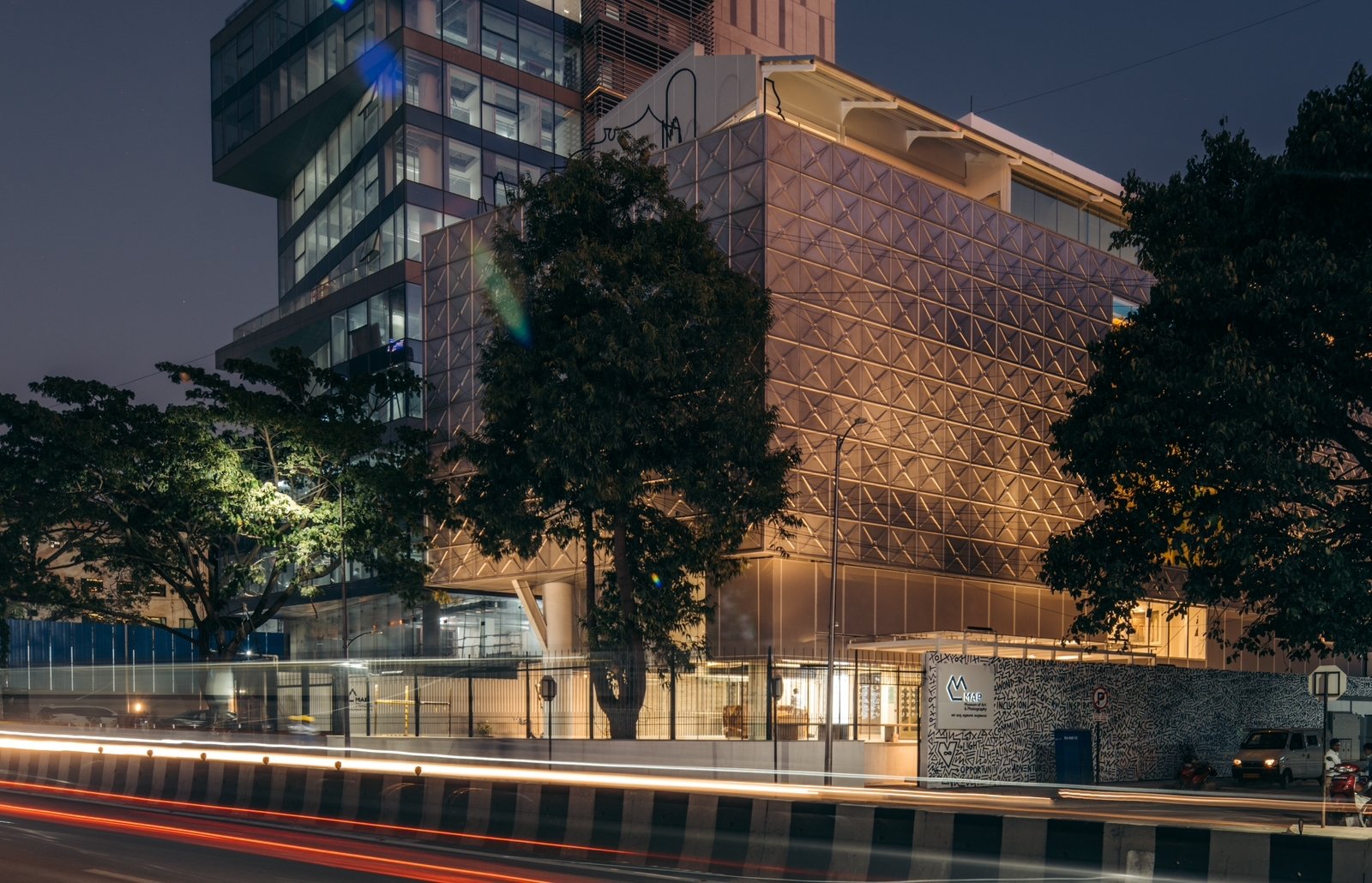
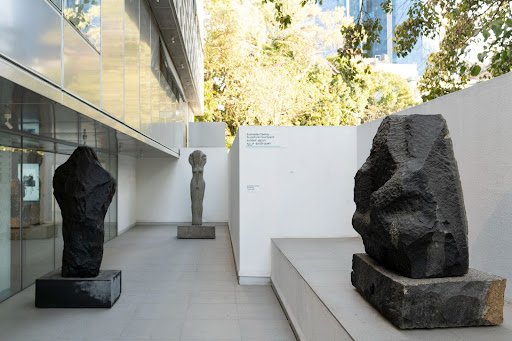
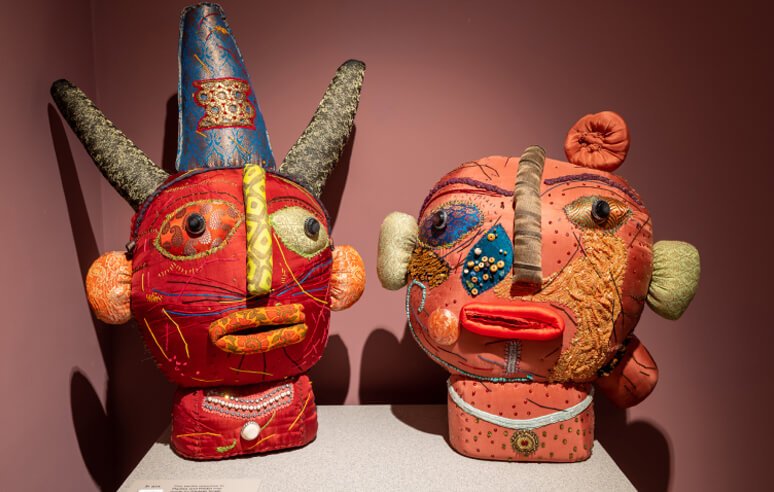
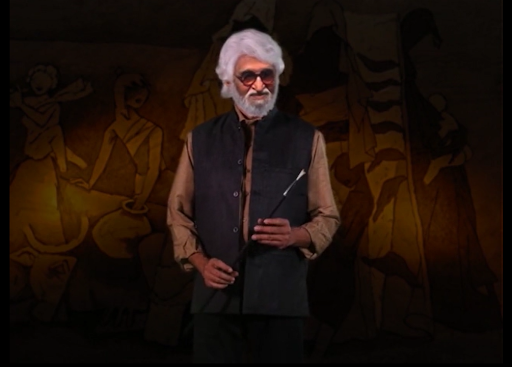
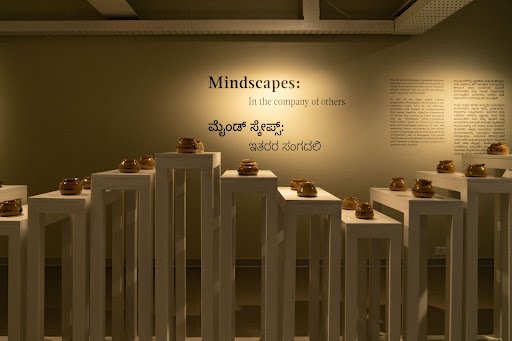
5) Provide links to the institution website as relevant support material:
Website Link: https://map-india.org/
AI experience: https://map-india.org/the-ai-husain-experience/
An article highlighting MAP’s inclusive culture: https://www.financialexpress.com/lifestyle/art-of-the-matter-map-ing-new-path-of-an-inclusive-culture/2533135/
Mindscapes: https://map-india.org/exhibition/mindscapes-in-the-company-of-others/